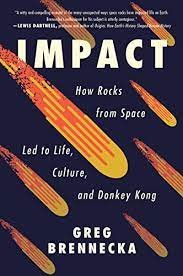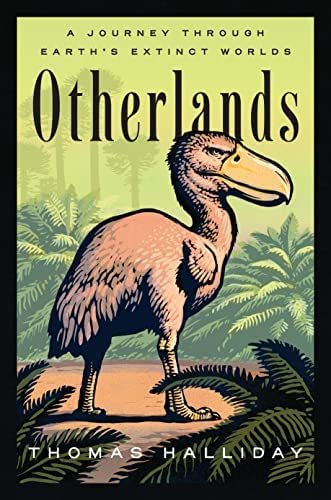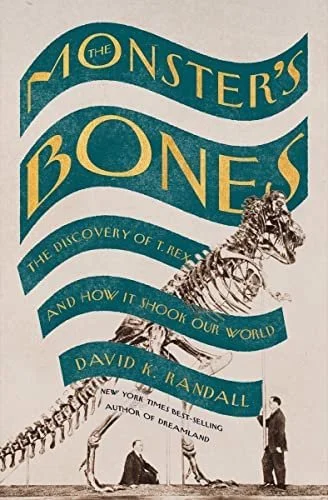The Best Books of the Year: Science
/Best Books of 2022: Science!
In 2022 science was once again a nightmare inversion of the onward-and-upward ethos of half a century ago; as in the last five years, so too in 2022 – science seemed to become not only a shorthand term for ‘dread’ but also a savage field of contention, with sizeable portions of society simply deciding that whole chunks of empirical science isn’t real or doesn’t count. Virtually all the science that made any kind of news in 2022 was the bad kind – insidious (lurking new pandemics), alarming (tech communication platforms being bought by single individuals), or outright terrifying (armed robot attack-police) – but even the worst such situation can still lead to some wonderful books! These were the best of them:
10 The Complete Guide to Absolutely Everything (Abridged) by Adam Rutherford & Hannah Fry (WW Norton) – What better way to start a list of the best science books of the year than with this lively concise look at what science is and how it’s worked throughout human history? This “everything but the kitchen sink” approach is admittedly tired (although still possessing enough kick to make Bill Bryson a pile of money doing the same kind of thing 20 years ago), but Rutherford and Fry go at it with a good deal of wit, and although the temptation must be pressing in a modern age of almost unprecedented scientific illiteracy, they never condescend to their readers, instead presenting them with what amounts to one of the greatest stories ever told.
9 A Molecule Away from Madness: Tales of the Hijacked Brain by Sarah Manning Peskin (WW Norton) – Peskin’s arresting book is full of horror stories of people whose brains suddenly began malfunctioning and causing them to do all kinds of strange things, but the heart of the narrative here is compassion, which makes this all the more remarkable a performance. Every one of Peskin’s stories about bizarre brain abnormalities is wreathed in pity and sympathy for the people whose lives were upended by the simple fact that we ARE our brains – and that the dividing line between business as usual and hospitalization or even death can sometimes be only a molecule wide.
8 Impact: How Rocks from Space Led to Life, Culture, and Donkey Kong by Greg Brennecka (Morrow) – One of the small illicit pleasures of books whose subtitles ridiculously over-promise their contents is the losing-team fascination of seeing just how close they come to succeeding. Greg Brennecka doesn’t really come close – innocent space rocks cannot be fairly blamed for video games – but even so, his raucous account of the literally life-changing effects that meteor bombardments have had on Earth’s biosphere is hugely engaging. Even if you go into this book already knowing there’s a lot more to killer asteroids than a bunch of dead dinosaurs, you’ll still learn a lot and have a good deal of fun along the way.
7 Otherlands: A Journey Through Earth’s Extinct Worlds by Thomas Halliday (Random House) – Perhaps it’s a sad reflection of the current state of things that so many of the year’s popular science books dealt with lost worlds and vanished eras – and the ways they were screwed up or ended. Thomas Halliday’s book is a wonderfully evocative look at long-gone epochs in Earth’s history, as reconstructed through whatever slim evidence we might still have. That evidence is run through Halliday’s imagination and given shape by some standout storytelling skills, all in order to give shape to dramas that played out on this planet sometimes millions of years before there was anything even resembling a human being to observe them.
6 The Last Days of the Dinosaurs: An Asteroid, Extinction, and the Beginning of Our World by Riley Black (St. Martin’s Press) – Riley Black’s book likewise looks to a vanished world, perhaps the most famous one of all: the late Cretaceous, when a bewildering variety of dinosaurs ruled a lush, thriving world and seemed poised to do so forever – when, famously, one of those rogue killer asteroids struck the planet, instantly deep-frying millions of land and sea animals and plunging the world into a nuclear winter that killed off all but a handful of the remainders. This is also an often-told story, and Black tells it with terrific energy, while incorporating the latest research into that cataclysm’s details.
5 The Elephant in the Universe: Our Hundred-Year Search for Dark Matter by Govert Schilling (Harvard University Press) – Calculations about all the celestial objects we can see has long made astronomers aware of the fact that there’s a great deal of something out there they aren’t seeing, something altering all those measurements without ever being visible itself. In this very pleasingly granular popular study, Grovert Schilling not only explains in fluid detail the scientific thinking about this so-called “dark matter” but also perfectly captures the lively scientific debates that have circled around the subject for decades. Those debates are far from settled, and Schilling very effectively conveys the excitement of that.
4 The Monster’s Bones: The Discovery of T. Rex and How It Shook Our World by David K. Randall (WW Norton) – The most famous of all the dinosaurs, the Tyrannosaurus Rex, is belatedly the star of this wonderfully readable book by David Randall, who fills these pages with the story of the so-called “Bone Wars,” in which Gilded Age prospectors risked life and fortune in the badlands in order to uncover the fossilized remains of dinosaurs – and the prize of all prizes, the T. rex. Although this is at heart a story of insatiable scientific enquiry, Randall also very effectively turns it into a grand adventure of outsized personalities, amazing coincidences, and unexpected moments of very human wonder.
3 The Rise and Reign of Mammals by Steve Brusatte (Mariner Books) – Paleontologist Steve Brusatte here follows up his hit book The Rise and Fall of the Dinosaurs with its natural sequel: the rise of the little mammals who survived the catastrophe that killed the dinosaurs, and their gradual flourishing to fill every ecological niche on the planet. That story is less well-known than the stars of the famous dinosaur saga, but Brusatte finds an enormous amount of fascination in its twists and turns.
2 The Song of the Cell: An Exploration of Medicine and the New Human by Siddhartha Mukherjee (Scribner) – In this fascinating book, Siddhartha Mukherjee gives readers a sweeping history of the discoveries and innovations that made clearer and clearer over the course of centuries the study of cellular nature and mechanics. Mukherjee, the author of hugely popular books like The Emperor of All Maladies, combines the stories of cellular-study pioneers with the stories of people whose lives have been changed by the behaviors, good, bad, and sometimes awful, of groups of cells in their own bodies.
1 Breathless: The Scientific Race to Defeat a Deadly Virus by David Quammen (Simon & Schuster) – The global phenomenon of the COVID-19 pandemic has spawned hundreds of books, but so far only one masterpiece: this book by David Quammen, the best science-title of 2022. In these pages, in his usual incredibly knowing and readable prose, Quammen sketches everything that’s known about the origins, spread, and public danger of the virus, plus all the efforts made to understand its nature and develop countermeasures in record time. This historic event now has its epic account.











